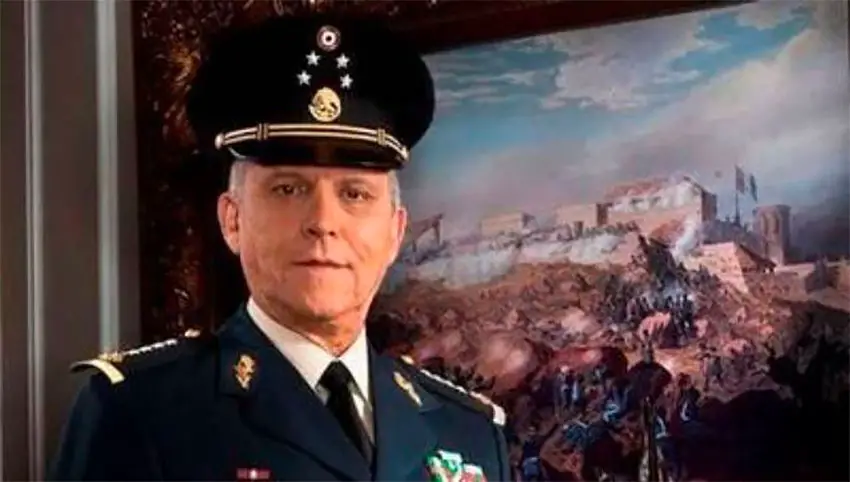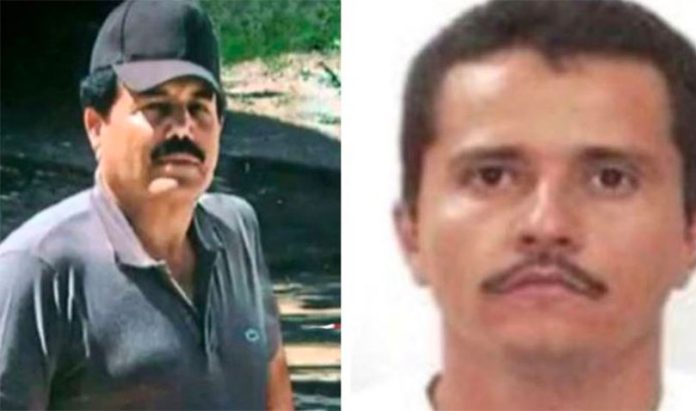The federal government made a commitment to the United States to arrest a high-level cartel leader in exchange for the dismissal of drug trafficking charges against former defense minister Salvador Cienfuegos, according to the news agency Reuters.
Cienfuegos, army chief during the 2012-2018 government led by former president Enrique Peña Nieto, returned to Mexico this week after a United States federal judge agreed to a request from the U.S. Justice Department to drop charges against him. He is now under investigation by the federal Attorney General’s Office, which has received evidence gathered by U.S. authorities.
Several sources have said that the United States government agreed to a request from Mexico for the general to be returned because the Mexican government threatened to end or limit cooperation with the U.S. Drug Enforcement Administration (DEA).
The U.S. government said “sensitive and important foreign policy considerations” were behind its decision, saying they outweighed its “interest in pursuing the prosecution of the defendant.”
But Reuters said it was told by a senior Mexican source that the government struck a deal with U.S. Attorney General William Barr for the charges against Cienfuegos to be dropped and in exchange it committed to arrest a narco boss.
According to the source, the government privately told Barr that it would work with the United States to arrest a cartel leader involved with trafficking fentanyl, a powerful synthetic opioid.
“Mexico committed to collaborate with the United States in the capture of a primary objective,” said the source who spoke on the condition of anonymity and declined to name the cartel leader out of fear that doing so would place the investigation at risk.
The source said the idea to drop the charges against Cienfuegos and make a deal to cooperate on the capture of a cartel capo came from Barr, not the Mexican government.
The latter hasn’t revealed exactly how the plan to bring the former defense minister home came about but President López Obrador said Wednesday that it had not committed to giving anything to the U.S. in exchange for the dismissal of the charges.
Foreign Minister Marcelo Ebrard said this week that he spoke to Barr on the phone in October and again on November 6. Barr proposed to drop the charges against Cienfuegos and cooperate on the capture of a cartel leader during the second call, the Reuters source said.
A spokesman for Ebrard told Reuters that he didn’t have any information about such an agreement. Daniel Millan said that what the two counties did agree was to “maintain a united front against crime and cooperation that respects the sovereignty of each country.”

Reuters noted that a spokeswoman for the U.S. Justice Department said there was no deal involving a commitment to catch a cartel leader. She referred the news agency to statements that said the case against Cienfuegos was dropped due to diplomatic considerations and the United States’ confidence in the Mexican justice system.
Reuters said the DEA didn’t immediately respond to its request for comment about an agreement to pursue a high-level cartel leader.
If a deal does exist, the most likely target would either be Jalisco New Generation Cartel (CJNG) leader Nemesio “El Mencho” Oseguera Cervantes or Sinaloa Cartel leader Ismael “El Mayo” Zambada.
According to the DEA, those two cartels are “likely the primary trafficking groups responsible for smuggling fentanyl into the United States.”
Both Oseguera and Zambada are on the DEA’s most wanted fugitives list and a US $10-million reward is on offer for information that leads to the capture of the former.
A DEA agent in charge of capturing Oseguera said last year that he had retreated to remote areas controlled by the CJNG.
“He hides in the mountainous areas of Jalisco, Michoacán and Colima. We think he’s not in the cities anymore,” Kyle Mori said.
There were also reports last year that El Mencho was preparing to return to his home town in the Michoacán municipality of Aguililla.
Zambada, a 72-year-old drug lord at the helm of the cartel once led by notorious kingpin Joaquín “El Chapo” Guzmán, is most likely living in remote mountain areas of Sinaloa. During more than half a century in the drug trade, he has never been arrested.
Source: Reuters (en)
